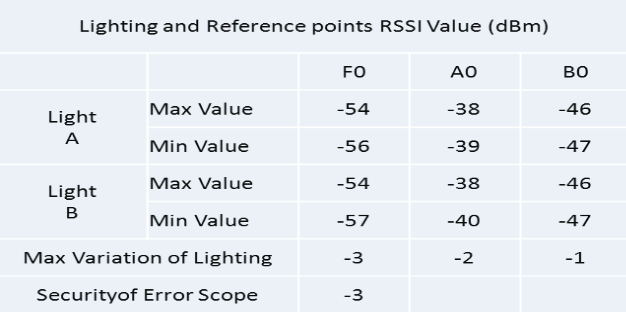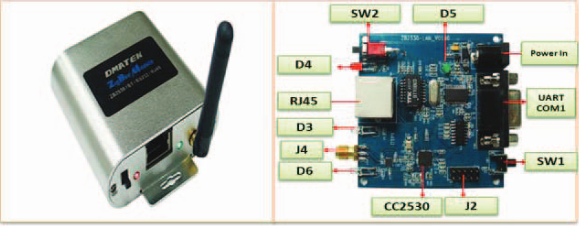ABSTRACT
The rapid development of wireless communication technology facilitates the realization of the Internet of Things (IOT). Self-configuration and smart connection system have become relative important issue in accordance with extensive applications of IOT, and the energy saving concepts. Therefore, this work presents the integration of ‘Self-configuration and Wisdom Connection System’ with Wireless Sensor Networks (WSN), IOT and ZigBee technology, to actualize self- configuration based on a received signal strength indicator Received Signal Strength Indicator (RSSI), lighting auto configuration area, regional allocation, and sub areas.
The proposed ‘Self-configuration and Wisdom Connection System’ automatically configures different lightings to the same position within in the range-3dBm when the RSSI value varies only slightly. The system is configured to the same lighting site within the experimental environment when the sub-area range set -3dBm. This study presents a significant contribution to new configuration of objects in IOT, context awareness control, and optimization of network control platform.
RELATED WORK
Wireless Sensor Network (WSN)
The rise of the WSN has involved the development of battery-powered WSN environments. In 2003, the MIT Technology Review identified the ten emerging technologies would soon change the fields of computing, medicine, manufacturing, transport and energy infrastructure. Among all of them, wireless sensor networks were the most promising.
- ZigBee/IEEE 802.15.4
- ZigBee IP
- Received signal strength indication (RSSI)
- ZLL (ZigBee Light Link )
SYSTEM ARCHITECTURE AND FUNCTIONAL DESIGN
The Smart RF Flash Programmer is a burning tool that is used to compile and burn the system microcontroller on a TI chip, such as CC243x/CC253x Flash memory and supports the IEEE address (read and write) which must be used with the CC243x / CC253x burner. Figure 3.3 shows the operating screen.
The ZB2530-01 wireless communication module includes a TI CC2530 ZigBee standard chip which can be used in 2.4GHz, IEEE 802.15.4, ZigBee2007 / PRO and RF4CE applications. Based on this module, the proposed system also includes a light sensing module, a mobile sensing device, LED lamps and an analog remote control. Figure 4 shows the exterior of B2530-01 sensor.
SYSTEM VALIDATION AND PERFORMANCE ANALYSIS
In embedded devices, fading that caused by signal reflection, scattering, diffraction and other multi-path phenomena, causes the received signal strength indicator (RSSI) in a particular location to vary.

Table 2 Statistical Analysis of Variation of RSSI of Lighting
Table 2 presents a statistical analysis of the RSSI variation of lighting devices based on experimental data and charts. The following conclusions are drawn.
CONCLUSION
With respect to the consumer market in ZigBee-related technologies have existed for a long time but are not yet universally used. With regard to smart families as an example, costs, system installation and operational complexity affect consumer acceptance. The seamless binding of wireless technologies to all types of home appliances, elimination of the cumbersome setting, and causing users to feel that using a remote control is as simple as using a cell phone may provide new opportunities related to the IOT. In this work, the ‘Self configuration and Smart Connection System’ is developed its feasibility verified. The results of verification of its major functions, Self-configuration, indicate that the system provides self-configuration for multi-lighting, with an RSSI value variation within -3dBm, and regional configuration in each sub-area validated.
Source: wineyard University
Authors: Wen-Kuei Hsieh | Wen-Hsu Hsieh | Jiann-Liang Chen | Chun-Yi Lin
>> Top IoT Projects using Microcontroller for Engineering Students
>> IoT based Embedded Projects for Engineering Students with Free PDF Downloads
>> 50+ IoT based Wireless/GSM Projects for Engineering Students
>> 200+ IoT Led Projects for Final Year Students

